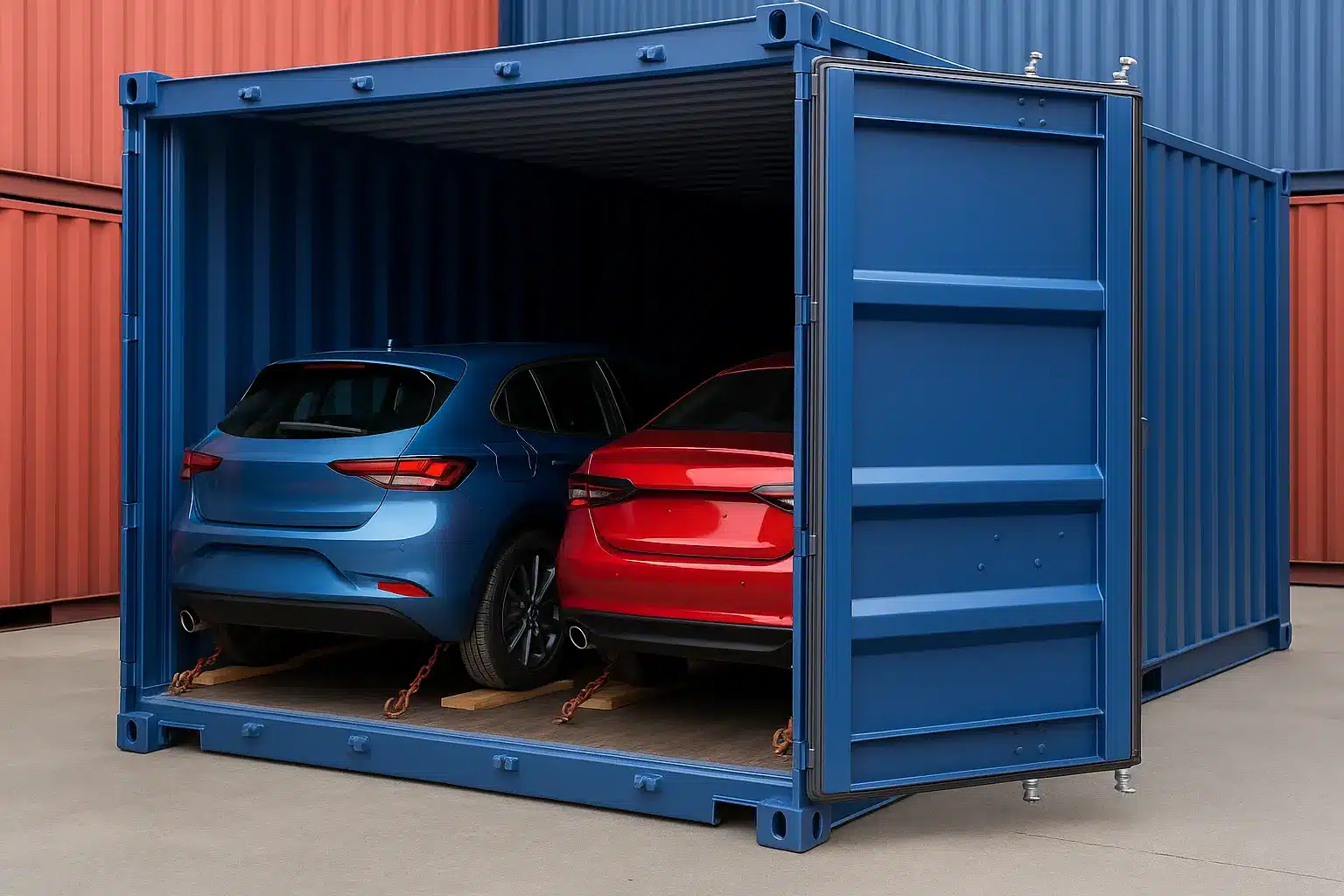Are you looking to ship your car to Jamaica with confidence and ease? If so, All TransportDepot Inc., a fully licensed FMC NVOCC (License #021693), manages the entire car shipping to Jamaica process from start to finish. From pickup in the United States to export documentation, ocean freight, and arrival in Jamaica, we handle every step carefully. As a result, your vehicle ships safely, remains secure, and arrives on time with clear communication throughout the journey.
In general, the cost to ship a car to Jamaica ranges from $1,100 to $2,700. However, the final price depends on several important factors. Specifically, vehicle size, shipping method, pickup location, and the U.S. departure port all influence overall pricing. Whether you are shipping a single vehicle or multiple cars, we provide transparent rates, reliable scheduling, and a stress-free shipping experience.
Ready to move forward?
👉 Place your order: https://alltransportdepot.com/place-order/
📞 +1 (678) 528-5794
📧 ship@alltransportdepot.com
FMC Licensed & Bonded NVOCC | Global Shipping Experts
Moreover, we specialize in vehicle shipping to Jamaica, offering both RoRo (Roll-On/Roll-Off) and container shipping services from major U.S. ports. With competitive rates, dependable sailing schedules, and experienced logistics coordination, international car shipping to Jamaica becomes simple, efficient, and hassle-free.
💲 Car Shipping Costs & Rates
👉 Place Your Order:
https://alltransportdepot.com/place-order/
📞 Call: +1 (678) 528-5794
📧 Email: ship@alltransportdepot.com
All TransportDepot Inc.
FMC Licensed & Bonded NVOCC #021693
⚓ Jamaica Ports
To ensure smooth customs clearance and efficient vehicle imports, we deliver cars through Jamaica’s primary seaports. As a result, shipments move through the port system faster and reach their final destination with fewer delays. To support this process, we route vehicles through the most reliable and well-established ports in the country.
Major Vehicle Import Ports in Jamaica
-
Port of Kingston
First and foremost, the Port of Kingston stands as Jamaica’s largest and busiest port for vehicle imports. It supports both RoRo (Roll-On/Roll-Off) and container shipping, while offering efficient customs handling, modern facilities, and strong inland transport connections throughout the island.
👉 https://www.portauthorityjamaica.com/ -
Port of Montego Bay
Additionally, the Port of Montego Bay serves western Jamaica and handles select vehicle shipments. Depending on routing and final delivery location, this port can reduce inland transport time and improve overall delivery efficiency.
👉 https://www.portauthorityjamaica.com/
Ultimately, our logistics team selects the most suitable Jamaican port based on routing efficiency, total landed cost, vessel availability, and final delivery location. In doing so, we ensure your vehicle arrives in Jamaica securely, compliantly, and without unnecessary delays.
📑 Documents
Shipping a car requires essential documents such as the original title, identification, and purchase invoice. Our team assists you in preparing all necessary paperwork to ensure smooth processing at the port.- Original vehicle title
- Government-issued ID
- Bill of sale/purchase invoice
📑 Import Rules (Jamaica)
To ensure a smooth and fully compliant vehicle import into Jamaica, our team actively guides you through customs regulations, port requirements, and import duties. As a result, you can avoid delays, penalties, and unexpected charges at arrival. Therefore, proper preparation before shipment plays a critical role in successful clearance.
Key Vehicle Import Rules in Jamaica
-
Used vehicles are permitted, provided they meet age limits and inspection requirements
-
Import duties and taxes are calculated based on CIF value (Cost, Insurance, and Freight)
-
Additional charges may apply, including GCT (General Consumption Tax), SCT (Special Consumption Tax), and port handling fees
-
Jamaica Customs requires clearance through a licensed customs broker at destination
Moreover, our logistics team assists with documentation, coordination, and broker communication, ensuring every requirement is met before arrival. Consequently, your vehicle clears customs faster, more efficiently, and without unnecessary costs.
🧰 How to Prepare Your Car
Preparing your car includes a simple checklist: remove personal items, reduce fuel levels, and document the vehicle’s condition. Following these steps helps avoid delays and ensures your car is ready for safe loading and transport.- Remove personal belongings (shipping of cars excludes personal effects unless in a container)
- Leave less than ¼ fuel tank
- Provide export docs
- Inspect and photograph the vehicle
✅ Why Choose All TransportDepot?
When you ship car with All TransportDepot, you benefit from:
-
FMC Licensed & Bonded NVOCC (#021693)
-
20+ years of international car shipping experience
-
Nationwide U.S. pickup from all major cities
-
Affordable, competitive rates with no hidden fees
-
Full insurance options for peace of mind
-
Expert support with documentation and customs compliance
👉 We ensure your vehicle arrives safely and on schedule.
👉 Get a Free Quote | 👉 Book Your Shipment
Shipping an Electric Car from the USA
❓ Frequently Asked Questions – Car Shipping to Jamaica
How Much Does It Cost to Ship a Car to Jamaica from the USA?
In general, shipping a car to Jamaica costs between $1,100 and $2,700. However, the final price varies based on several important factors. Specifically, vehicle size, shipping method (RoRo or container), pickup location, and the U.S. departure port all influence the total cost. For instance, larger SUVs, vans, or trucks typically cost more due to space and weight requirements.
What Is the Cheapest Way to Ship a Car to Jamaica?
In most cases, RoRo (Roll-On/Roll-Off) shipping offers the most affordable solution for vehicles that run and drive. Because RoRo involves minimal handling and no container usage, it usually results in lower shipping costs and faster port processing. As a result, many customers choose RoRo whenever their vehicle qualifies.
How Long Does It Take to Ship a Car to Jamaica?
On average, transit time from the United States to Jamaica ranges from 1 to 3 weeks. That said, vessel availability, port congestion, and customs clearance timelines can extend delivery slightly. Therefore, preparing documentation early helps keep shipments on schedule.
What Are Jamaica’s Car Import Rules and Restrictions?
Before shipping, it’s essential to understand Jamaica’s import requirements. In summary:
-
Import duties and taxes are calculated based on CIF value (Cost, Insurance, and Freight)
-
Used vehicles must meet age limits and inspection requirements
-
Customs clearance must be completed through a licensed customs broker
Most importantly, accurate documentation before arrival helps prevent delays, penalties, and unexpected costs.
Should I Choose RoRo or Container Shipping?
Ultimately, the right option depends on your vehicle and priorities:
-
RoRo Shipping: Lowest cost and ideal for operational vehicles
-
Container Shipping: Provides added security and works best for high-value, non-running, or damaged vehicles
Accordingly, our team evaluates your vehicle and budget to help you choose the most suitable method.
Can You Ship Non-Running or Damaged Vehicles to Jamaica?
Yes. When vehicles do not run or require extra care, we ship them using container services. Additionally, when needed, we arrange special loading equipment to ensure safe and secure handling throughout the process.
Do You Offer Inland Pickup in the USA?
Absolutely. In addition to port delivery, we provide nationwide door-to-port pickup across the United States. This includes convenient pickups from homes, dealerships, and major auctions such as Copart, IAAI, and Manheim.
How Do I Get a Free Quote for Car Shipping to Jamaica?
To get started, simply use our online car shipping rate calculator or contact our team directly. Once you share your vehicle details, we promptly provide a fast, transparent quote with a complete cost breakdown and estimated transit timeline.
2025’s Most Popular Imported Vehicles: Top Models
✈️ Get a Free Quote Today
Ready to ship your vehicle by air? Here’s what we’ll need to get started:
📧 Email: ship@alltransportdepot.com
📲 WhatsApp: +1 (470) 791-4497
📞 Phone: +1 (678) 528-5794
At All TransportDepot Inc., we ensure premium service for safe, secure, and reliable car air shipping worldwide.
👉 Don’t wait—Get Your Free Quote Now

Ryan is an experienced truck driver at Lone Star Auto Transport. He’s logged thousands of miles, safely delivering vehicles across the vast expanse of Texas and beyond. His commitment to on-time deliveries and vehicle care is unmatched.



